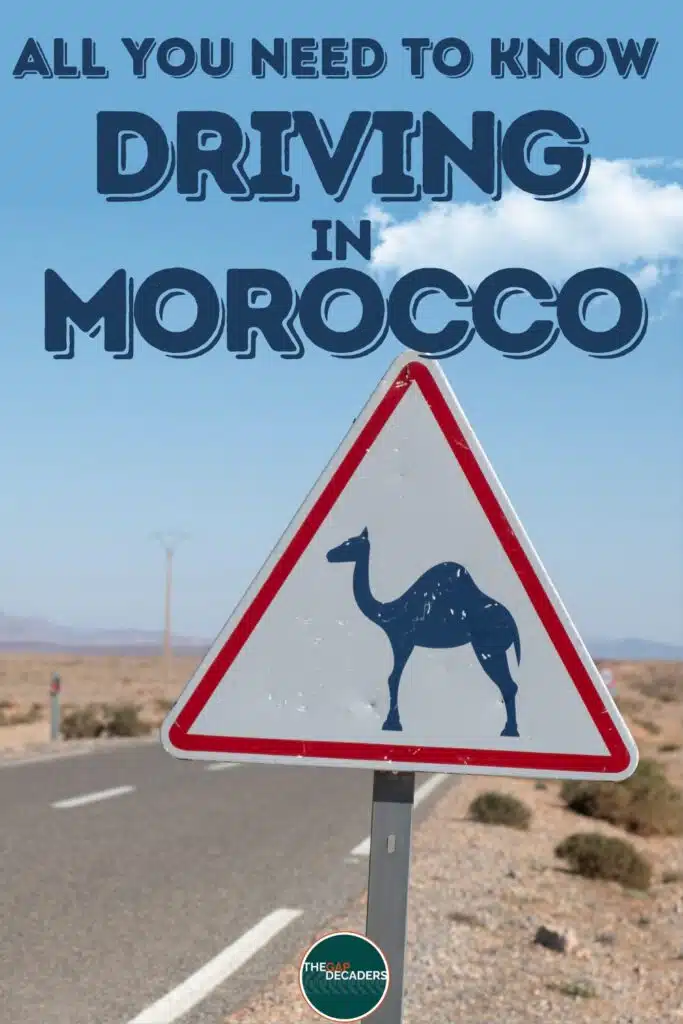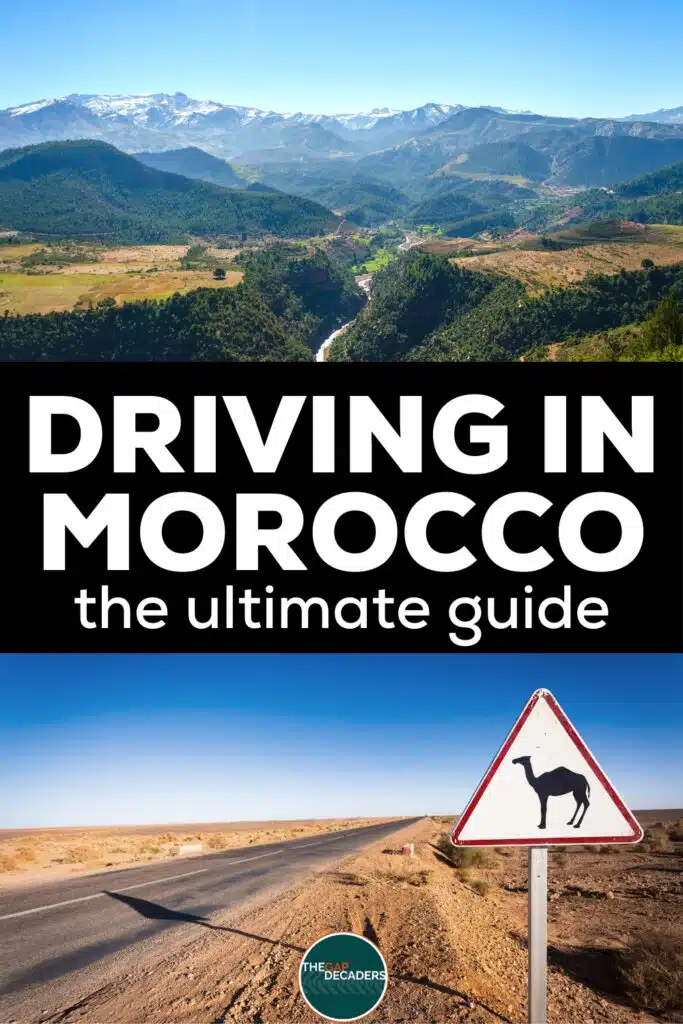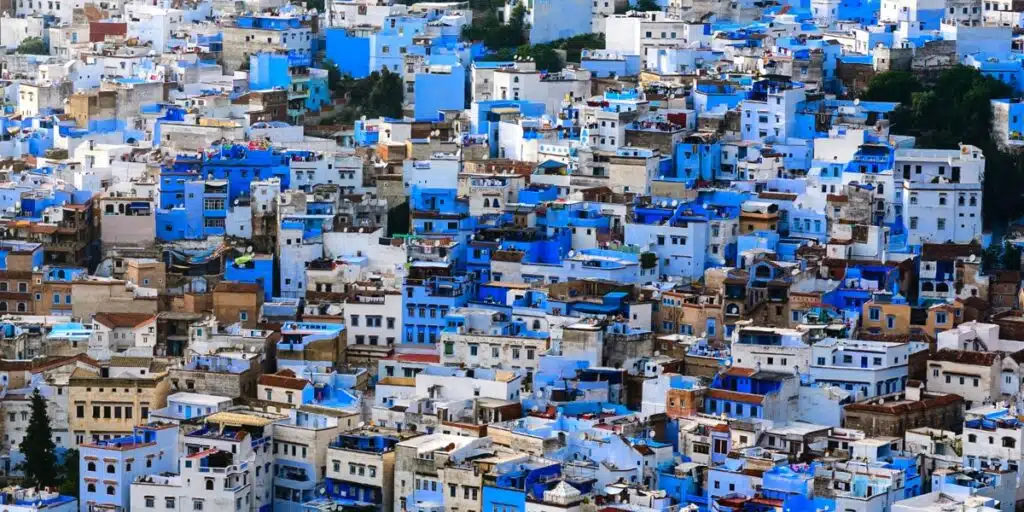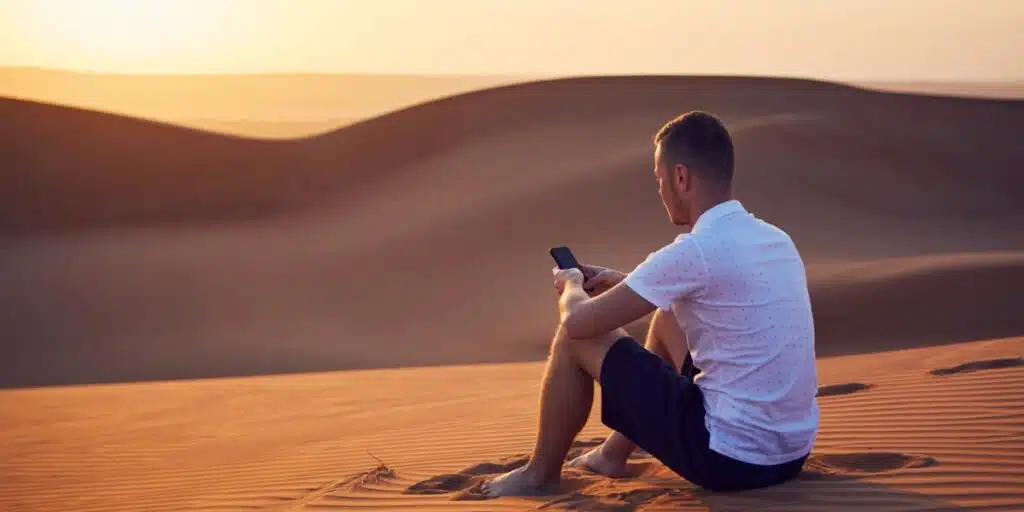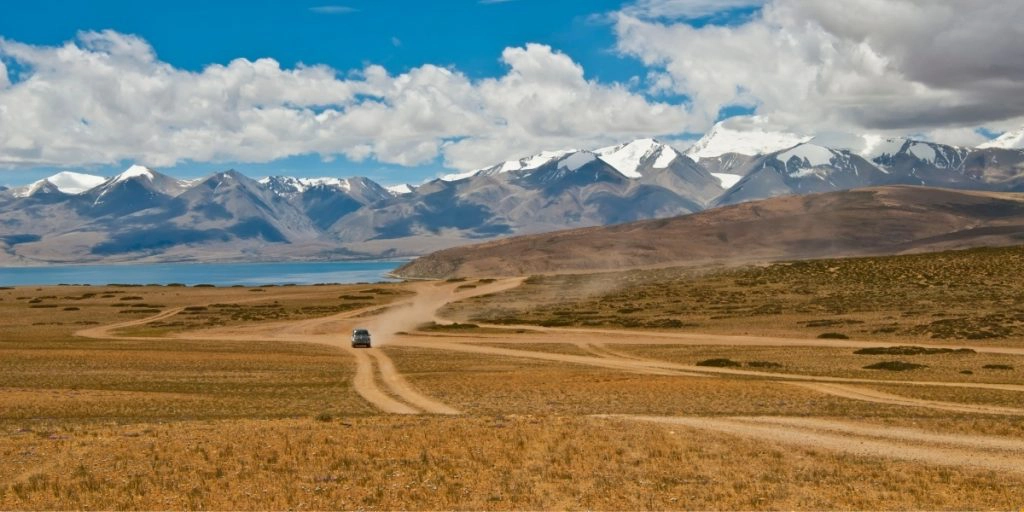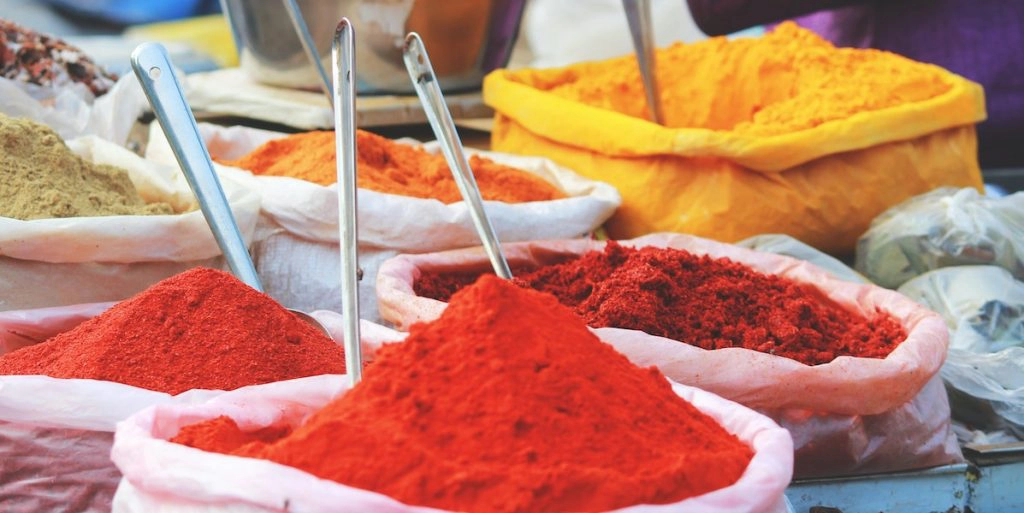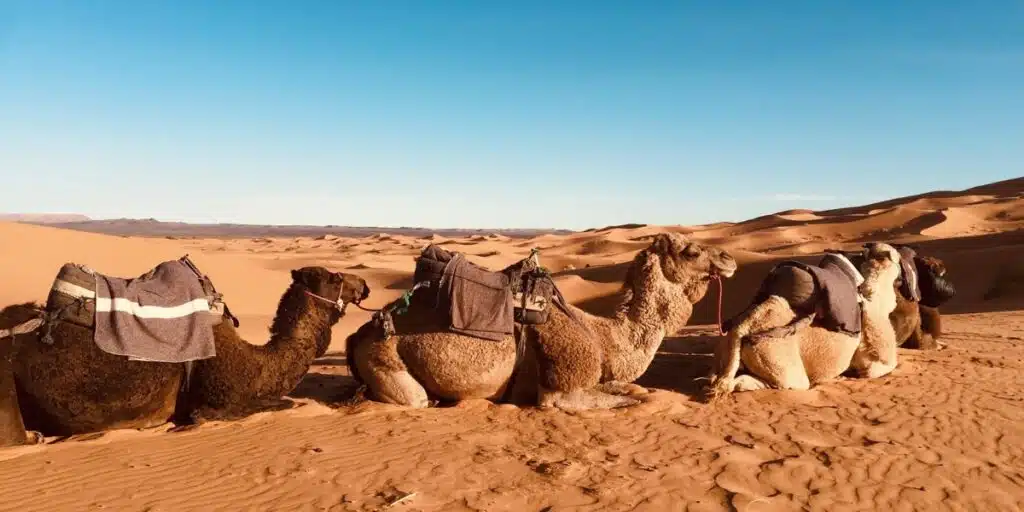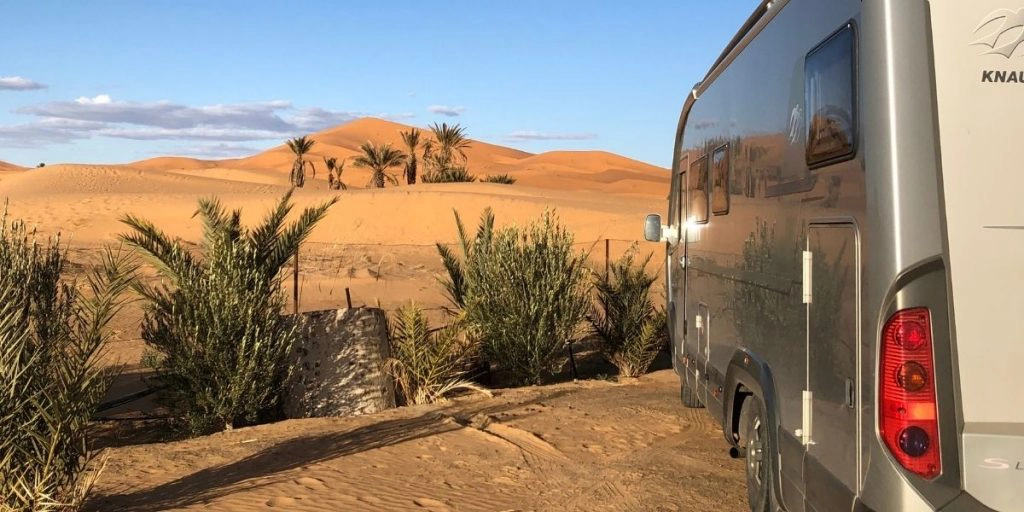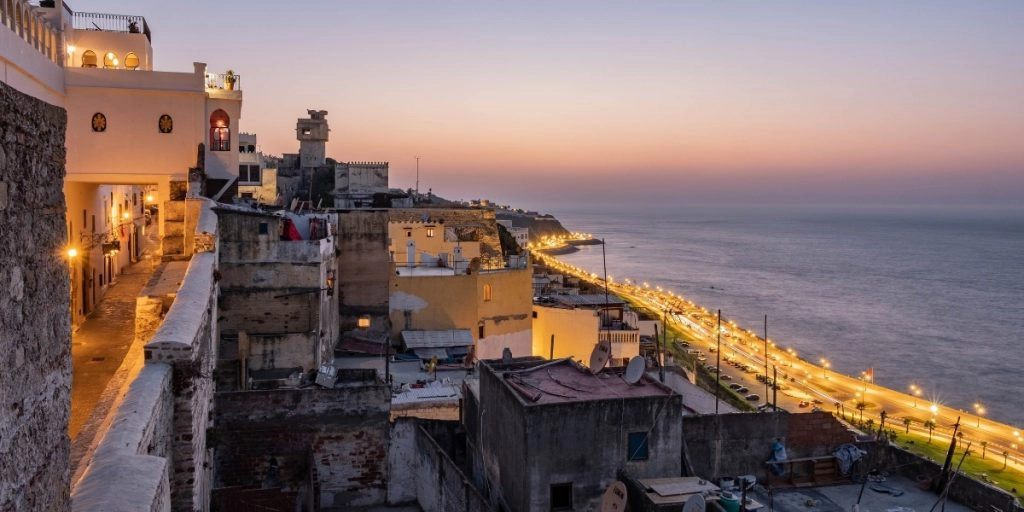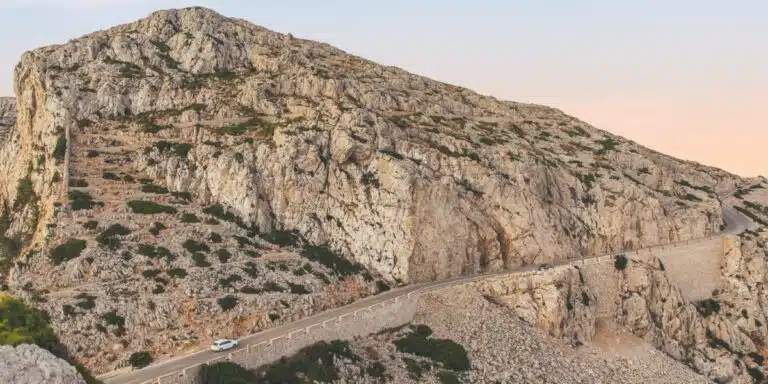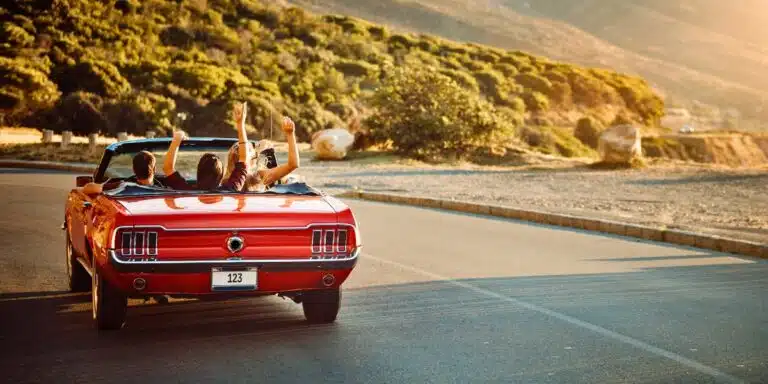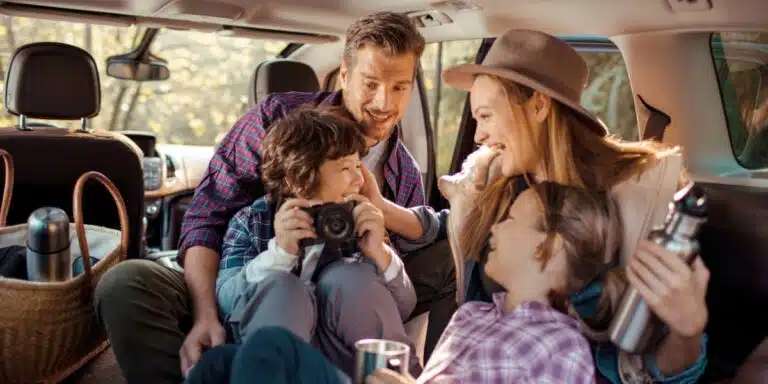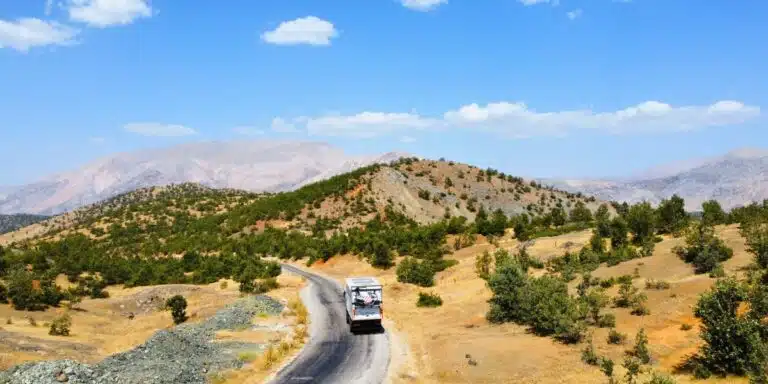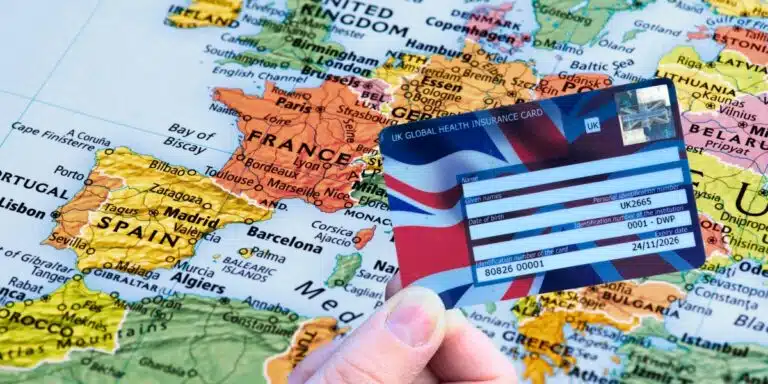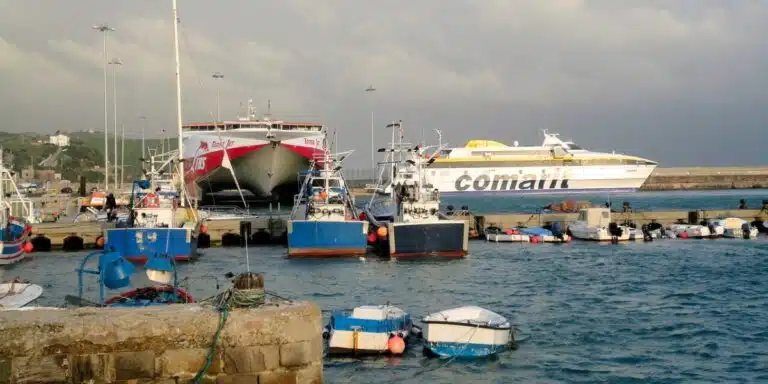This post may contain affiliate links, from which we earn an income. Click here to read our affiliate policy.
Morocco Driving & Road Trip Travel Tips
Moroccan roads are made for driving, it’s the perfect country for road trips and longer tours. Driving in Morocco is not like driving back home though, and at times being on the road in Morocco can be challenging.
We’ve spent a lot of time in Morocco and have been driving and traveling there for years, and spend most winters road tripping in Morocco.
In this Morocco driving guide, we’ll share lots of practical driving tips and tricks, information about road conditions, and highlight what to expect when you’re behind the wheel so you can enjoy a safe and stress-free road trip in Morocco.
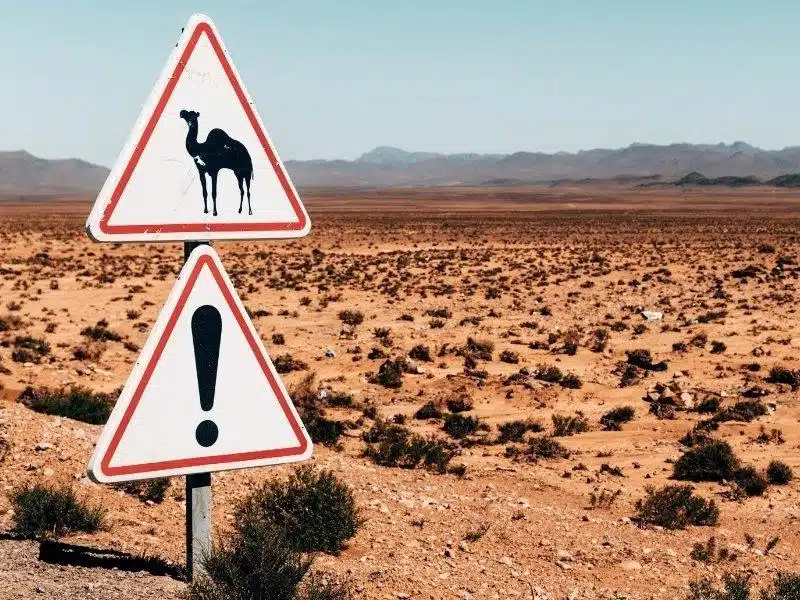
Is it Safe to Drive in Morocco?
This is #1 question asked about driving in Morocco! Having spent every winter there for the past three years, and driving from top to bottom and coast to desert, we think it is safe to drive in Morocco.
The World Health Organization shows fatal road traffic accidents as incidents per 100,000 inhabitants. In Morocco, the number stands at 18, which is lower than Africa’s overall number of 26.6, and only slightly higher than America’s 15.6. In Europe, this number is much lower at 9.3. Driving in Morocco is more risky than it may be in your home country.
However, we think it is safe to drive in Morocco as long as you follow the traffic rules, pay attention, and drive carefully, especially in and around cities and off-the-beaten-track rural areas.
In this post, we’ll be sharing all our top tips for driving in Morocco safely so you can focus on having an amazing trip.
Is this your first time visiting Morocco? Get all the information you need in our Morocco Travel Guide, including what to pack, the best time of year to go, getting there and practical tips to help you have the best trip!
Why Drive Yourself in Morocco?
Morocco is a diverse country, with a well-developed public transport system that includes shared grand taxis, coaches, and trains, as well as a plethora of day trip options from Marrakech and Fez. You may wonder why you would want to self-drive when all this exists.
If you want to get under the skin of the country and experience the true Morocco, you need to get off the beaten path a little. Sure, go and see all the big-hitting tourist attractions, but even if you go it alone for just a few days, you’ll experience so much more of authentic Morocco.
Managing your own itinerary and not being beholden to a driver or other passengers is a great way to explore at your own pace and have the freedom to change plans. Enjoying a lie-in, getting up and going at the crack of dawn, or just moseying around looking at interesting stuff as you find it makes driving in Morocco a smart choice.
You may also feel safer driving yourself and setting your own pace. Some of the taxi drivers are on tight schedules and in our opinion, drive way too fast and take unnecessary risks for the road conditions.
RELATED POST: Atlantic to Sahara – An Incredible Moroccan Road Trip
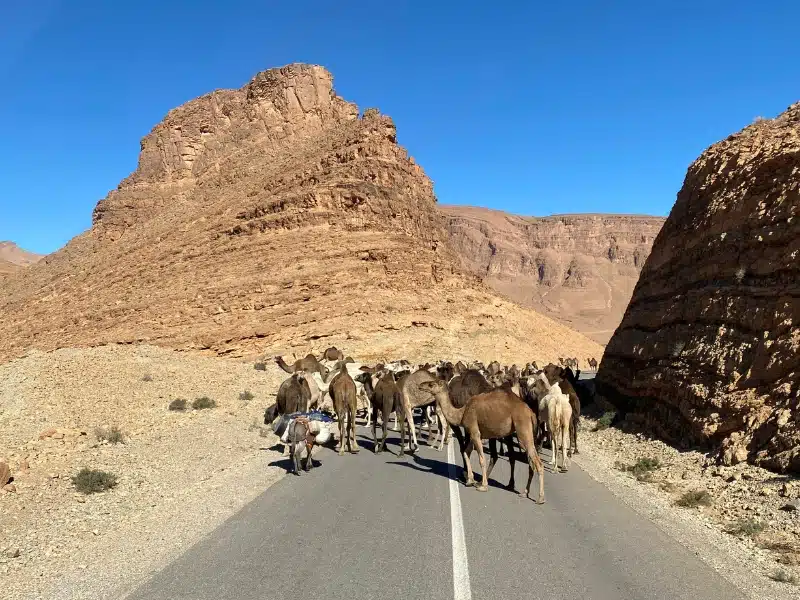
Renting a Car in Morocco
Even if you hire a car for your Morocco road trip from reputable and highly recommended national or international rental companies, there may be language barriers and opaque practices when you get to the car rental company depot. These are some common issues:
Sometimes you have to accept the local ways in a foreign country; only you can decide what you’re comfortable with and how much you’ll willing to concede regarding your rental agreement at this point in your trip.
Take photos of anything under dispute (make sure they’re dated) and record discussions regarding important things like insurance. You may also wish to take a video of the car filming both inside and outside of the car and clearly stating verbally where there are scuffs, marks, and scratches.
When we have rented a car in Morocco, we’ve always had the best experience with Rentalcars.com. They have the widest range of pick-up points and cars and always have the best deal.
Taking Your Own Car to Morocco
Driving to Morocco from UK or EU in a car or motorhome is pretty straightforward. Some Spanish car hire companies may also agree to you driving a rental car in Morocco but it’s a good idea to check with the car hire company first. To take your own vehicle to Morocco you’ll need the following documentation:
RELATED POST: Ferry from Spain to Morocco: Best Options & Top Tips
Make sure you have travel insurance you can trust when visiting Morocco. We recommend True Traveller for their 5-star TrustPilot reviews, variety of cover options, best activities cover as standard, great prices, and excellent service.
Moroccan Road Rules
Many rules of the road in Morocco are similar to those in Europe. Where Morocco seems to differ is that locals don’t always follow the rules, but you definitely should!
Want to stay connected in Morocco? In our detailed guide to SIM cards in Morocco, we share everything you need to know about buying and using a Moroccan SIM card.
Speed Limits in Morocco
The speed limits in Morocco are 120 km/h on motorways and between 100 and 40 km/h on all other roads, which is dictated by signs, so keep your eyes peeled. Vehicles over 3,500kg are limited to 100 km/h on motorways, and 90 km/h on rural roads.
The police are strict when applying speed limit laws with speed cameras and speed traps frequently used. The fines can be hefty, even if you’re 5km/h hour over the limit. Fines for foreign registered vehicles are applied on the spot and have to be paid on the spot. The average fine can turn into hundreds of pounds or dollars, so stick to the speed limit!
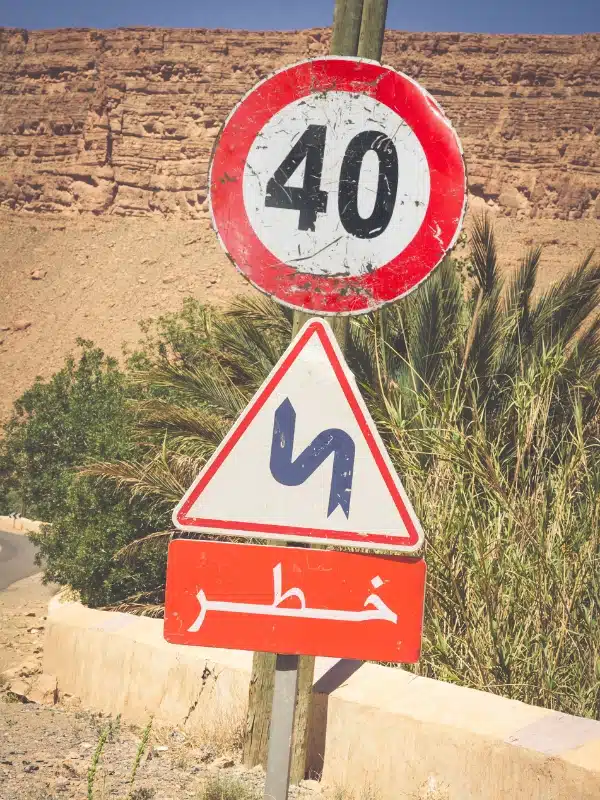
Toll Roads in Morocco
Morocco’s network of motorways is administered by the state-owned company Autoroutes du Maroc (ADM). Some motorways are also toll highways, that are mainly in the north, around main cities, and in popular coastal areas.
Unlike European toll roads Morocco has not yet automated all its services and toll gates are present along the route. Toll costs are much cheaper than those in Europe and usually have to be paid in cash at the toll booth, so make sure to carry small change.
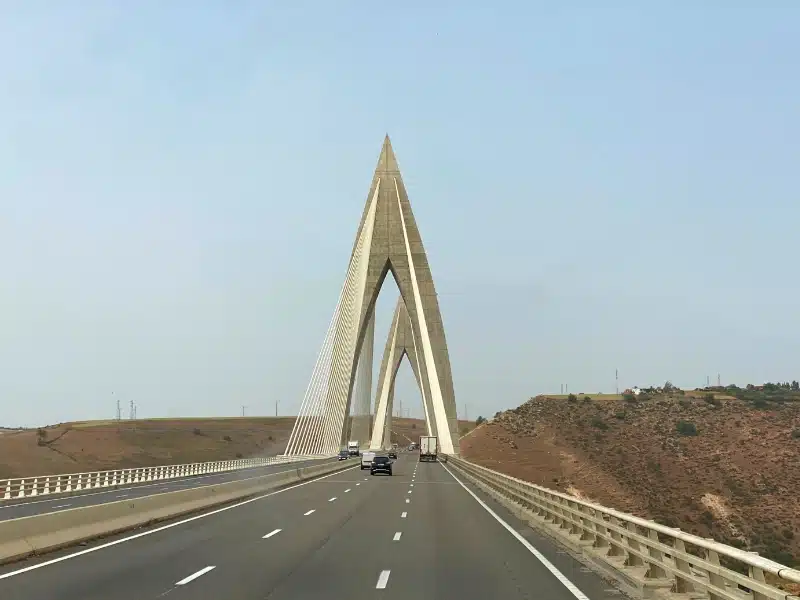
Moroccan Road Etiquette
Moroccan drivers vacillate between driving painfully slowly and overtaking you on a blind bend.
They will often not stop at pedestrian crossings, drive down the middle of the road, maneuver without making turn signals, and park in the most inappropriate and thoughtless places.
Expect the unexpected, pay attention, and understand that Moroccan drivers don’t know how to use their mirrors or indicators and you’ll be fine!
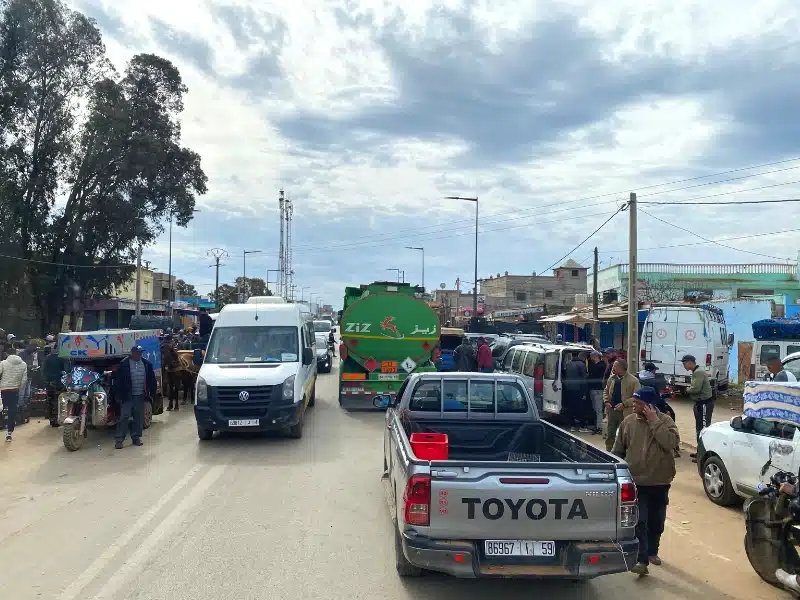
Road Signs in Morocco
Road signs in Morocco are generally the same as those in Europe, although the language may be different. A stop sign, for example, is the same eight-sided shape and red color as it is in most of the world.
In tourist and urban areas you will see road signs in Arabic, Berber, and French. If you’re off the beaten track, it will be Arabic only.
Lots of Moroccan people speak a little French, if you don’t speak it make sure you download a translation app before you go.
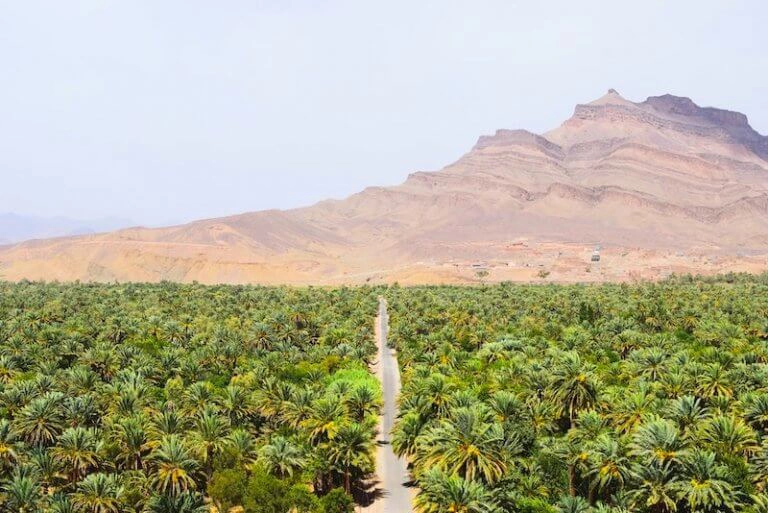
Moroccan Road Quality
Expect potholes, dangerous verges and lots (and lots) of hair-pin bends, along with spectacular views, Top Gear style driving, and enough adventure to satisfy even the biggest of thrill seekers!
There are broadly two types of roads in Morocco, sealed roads and pistes, which are basically graveled unsealed tracks and dirt roads.
The quality of R roads (regional) and P roads (local) is mixed and not all rural roads will be sealed, although regular upgrading does take place. In rural areas, local villages are often connected to each other and the main roads by unsealed tracks.
All major roads are tarmacked with motorways and N (national) roads are maintained in generally good condition with street lighting.
The most up-to-date road map of Morocco is the Michelin 742 National Morocco Travel Map 2015 and the only map to show the different road surfaces.
Pistes do not necessarily need a 4 wheel drive vehicle. You can road trip the whole of Morocco in a 2 wheel drive vehicle, as long as you deploy common sense! Ground clearance, robust tires, good suspension, and confident driving are more important requirements for pistes.
RELATED POST: What Do I Need to Know Before Going to Morocco?
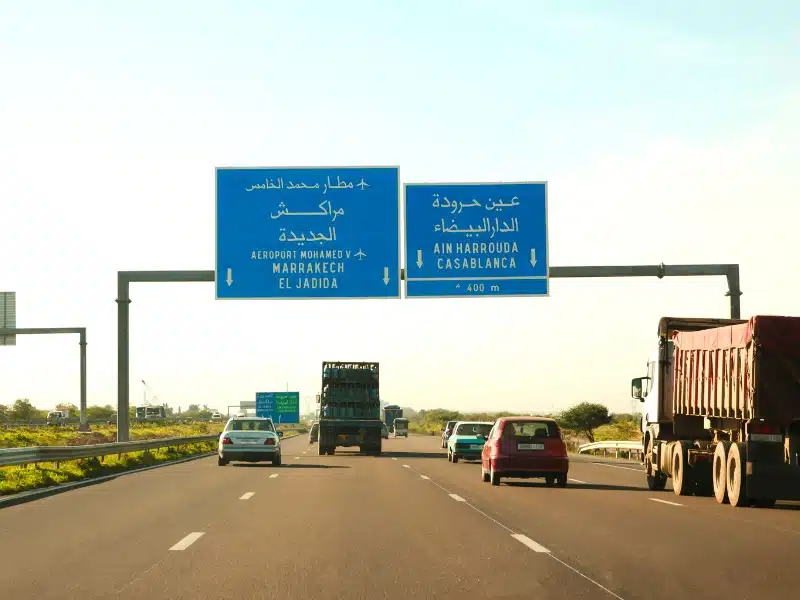
Road Works in Morocco
Morocco is heavily investing in infrastructure which means that many of the roads are being upgraded and sometimes on a large scale.
Roadworks are not always well managed, often with no mechanism for two-way traffic to pass and no traffic management to control the flow. Sometimes there are no signs – the tarmacked road just ends and you’re diverted onto a gravel track.
This can mean a lot of maneuvering to get through and you may have to be bullish about this, or you’ll be hanging around for hours at busy sections.
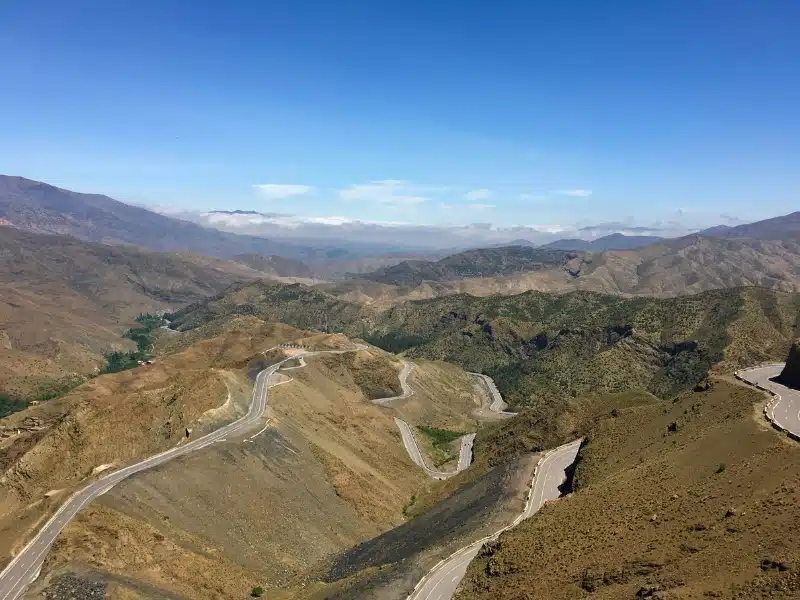
Road Hazards in Morocco
Driving in Morocco is safe if you are aware and prepared. You will undoubtedly come across lots of hazards when driving in Morocco. Awareness cannot compensate for the unexpected, so drive cautiously in unfamiliar surroundings.
It’s common for pedestrians, cyclists, donkeys, and mopeds to meander into the road, often without looking. Pedestrians and cyclists are a particular hazard when passing through towns and villages, especially on souk (market) days or at times when school is finishing, and camels wander at will as you get closer to the Sahara Desert!
You will come across vans and lorries with ridiculous loads perched and balanced on their roofs. Give them a wide berth, they have been known to topple over.
Sometimes the tarmac just disappears, leaving raw piste, large potholes, and craters. Damage is often passable with a little caution but if you’re unsure get out and have a good look around, checking the road surface carefully.
RELATED POST: Sahara Desert Morocco: Map, Tips & Ideas for Your Visit
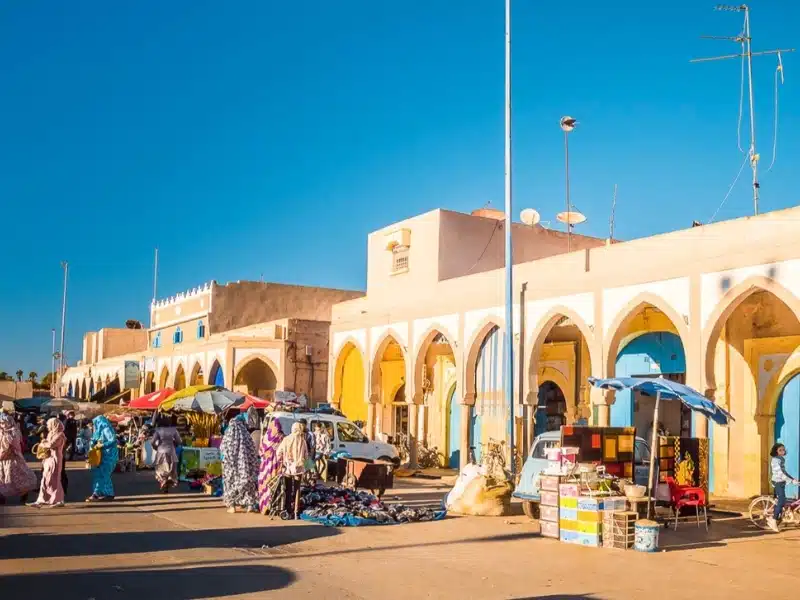
Driving at Night in Morocco
Driving in Morocco at night is particularly hazardous. Leave enough time to get to your destination (and it will take longer than you think!).
There is usually no road lighting on smaller roads and Moroccan driving laws state that it’s legal for cars driving under 20km/h at night to drive without lights …yep, really!
At night, your’s may be the only light on the road but there will be wild animals, other cars, and people that you just can’t see. On mountain roads, you will encounter rock falls (which are common) and debris across the roads.
If you cannot avoid driving after dusk, be very cautious and ready to brake at all times.
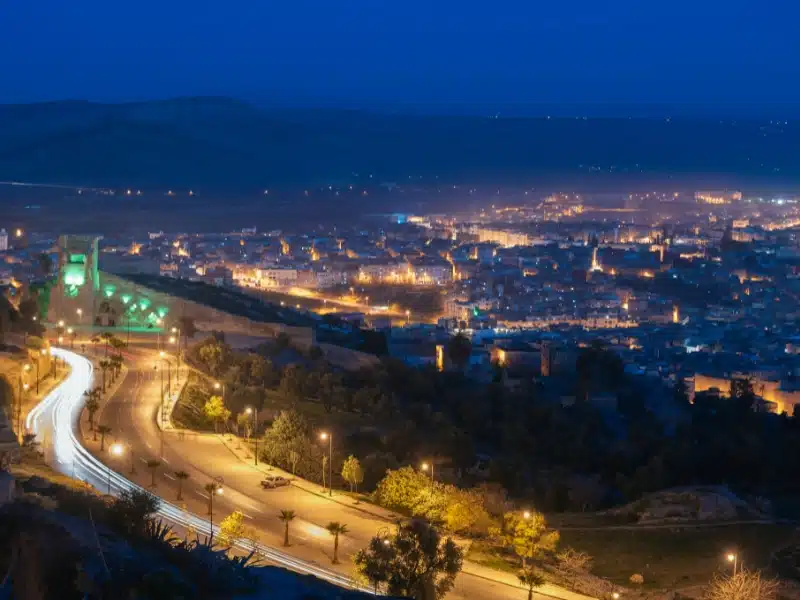
Navigation in Morocco
There are a number of options to help you navigate in Morocco. We use the Michelin 742 National Morocco Travel Map 2015 for bigger-picture planning and to understand the types of roads on our planned route.
Maps.me is our go-to sat nav app and it provides turn-by-turn navigation throughout the country, even on unsealed roads and off-road tracks. Make sure to download the app and free Morocco maps before your trip for offline access and navigation where there is no signal.
Maps.me also provides routes where Google Maps is unable to, or inexplicably stops routing part-way through a journey. During our 2023 trip to Morocco, this seemed to be less of an issue but we still prefer Maps.me as the final destination always seems to be more accurate.
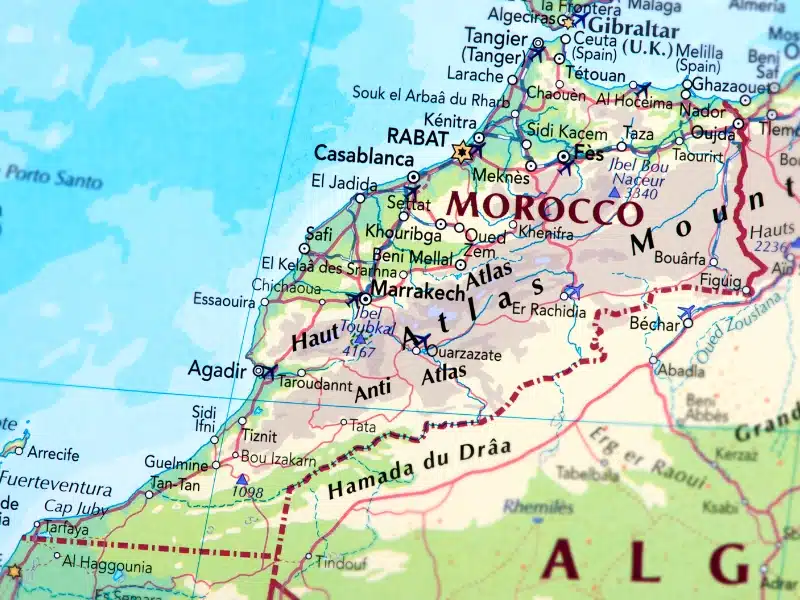
Driving in Moroccan Cities
Do not attempt to drive through any of the major cities in Morocco, in fact, avoid the smaller cities too! The best way to visit cities in Morocco is to use the ring road or park outside and head in on foot, get a petit taxi, or use public transportation.
Medinas and older parts of Moroccan towns and cities are not designed for cars. The narrow roads are not suitable for most motorized vehicles unless you’re on a scooter, and you’ll find yourself stuck with no way out.
Trying to drive in the Marrakech Medina may be a great dinner story a few years down the line, but hugely embarrassing and potentially costly at the time!
Most bigger cities have a multitude of roundabouts on the main roads in and out. Often two lanes can become four or five lanes of traffic as vehicles jostle with each other for supremacy.
There are often no lane markings on the roundabout itself so be cautious as you enter and exit, checking in both side mirrors for vehicles and cyclists who will cut across you without a thought.
If you are driving a foreign-plated or rental car, you may be harassed by Moroccan men on mopeds as you enter the city outskirts. They are trying to direct you to parking or accommodation, for which they receive a commission.
Ignore them, which is not easy when they’re banging on your window, and they will move on to the next foreigner with money to spend.
RELATED POST: Adventurous Road Trip – 26 of The World’s Most Exciting Routes
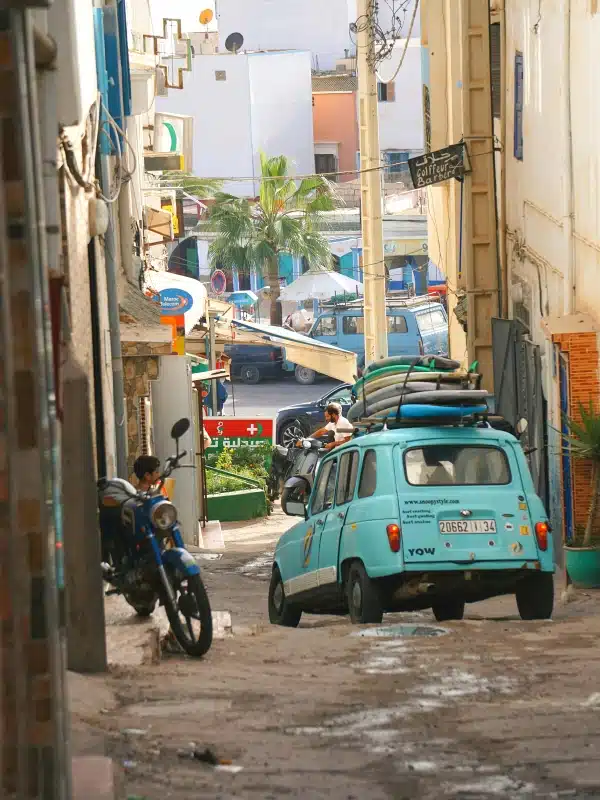
Parking in Morocco
Almost all city and town parking is guarded and will have a guardien who will direct you to a parking space and charge you for parking and looking after your vehicle. Expect to pay around 5MAD to 30MAD depending on how long you stay and where about you are in the country.
It can be easy to resent this, but this service is well worth paying for and provides much needed employment for people.
We would not park without paying a guardien because a) it’s such a small amount of money and b) not having one makes your vehicle vulnerable to a break-in. Always remove valuables though and don’t leave your stuff on display.
More Morocco Travel Guides
Selling and Begging in Morocco
As you pass through the more picturesque, and therefore busier, parts of Morocco, people will try and sell you things on the side of the road: fossils, crystals, local handicrafts, or food.
On the roads to Marrakech, there is a trader on every corner holding up their rock crystals and waving you down as you drive past. If there are traders on the road and you stop to take pictures, they will harass you to buy, even standing in front of your car or in front of the door so you are unable to close it.
Be polite but firm (unless you want to buy of course). Sometimes selling can descend into begging, moving on to a poverty story and outright asking for money or items such as clothing for their family.
In some places, where there are likely to be tourists, children will beg for food at the side of the road. This is difficult to see and it’s tempting to stop and provide food.
However, giving food to children shames their families (even if they are hungry) and, we believe, perpetuates the problem, although it can be difficult to say no.
If you want to be prepared, take pencils and notebooks for the kids, but definitely not sweets as access to state-provided dental care in Morocco is non-existent.
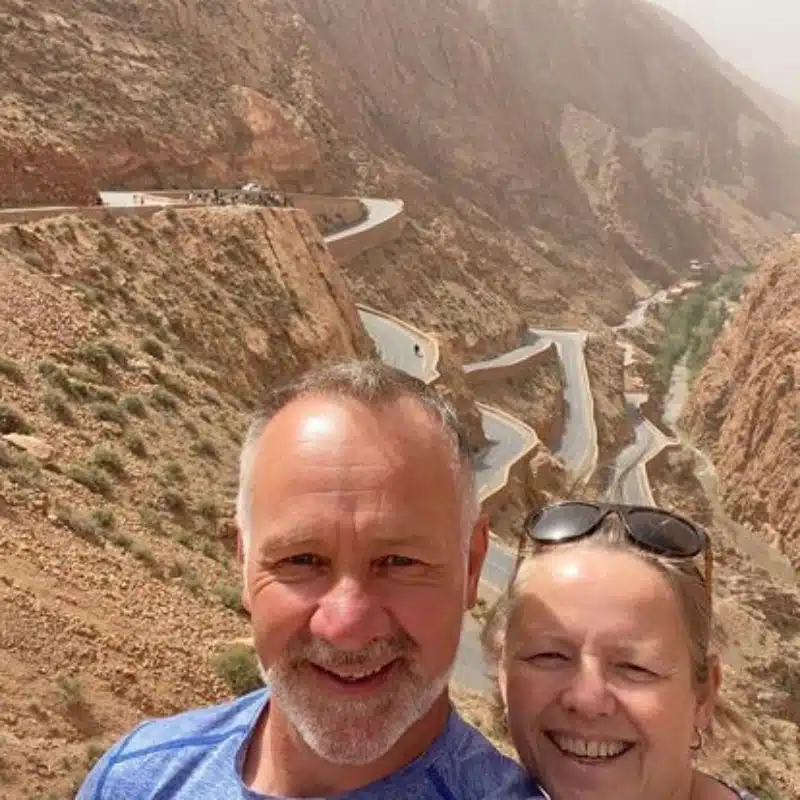
Weather in Morocco
Morocco is a country of extreme weather. Huge temperature differentials by day and night, monster sandstorms, and raging rivers during the rains. All of this affects the roads which can often be damaged by such forces of nature.
There is often little warning that damage may have occurred, particularly if it’s recent. Be aware and don’t allow yourself to be distracted by the scenery whilst driving into a large pothole!
If there is a strong chergui (easterly wind) forecast, it’s advisable not to drive. Chergui carry a lot of sand and dust which can be damaging to your vehicle engine and limit visibility. Wait it out inside somewhere with a pot of mint tea!
If you’re traveling in winter, the High and Middle Atlas passes are often closed due to weather. Check before heading off into the Atlas mountains; if the snow gates are closed then the road is impassable.
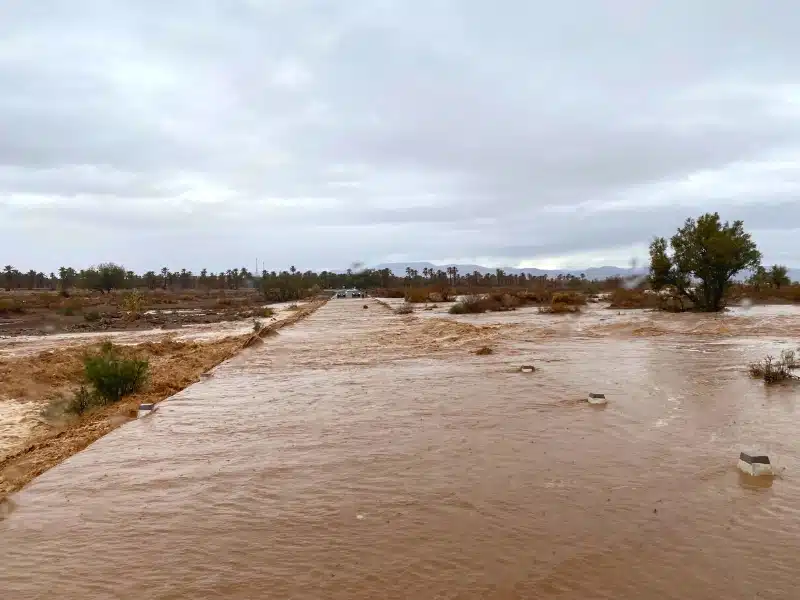
Fuel in Morocco
Petrol stations are plentiful, even in small villages and the most remote areas, but do check first if you’re planning a long drive in a remote or mountainous area.
It is considerably cheaper to fill up in Morocco than anywhere in Europe with gazole (diesel) at 14MAD per liter (£1.10/US$1.41) and sans plomb (unleaded) at 11MAD per liter (£1.23/US$1.56).
Sometimes you will see a fuel station on your mapping device, but there are no pumps on arrival. This means that fuel is sold by the jerry can which is a great option in an emergency. Buying fuel this way is usually around 2-3 times as expensive as paying at the pump.
Most Moroccan gas stations are serviced, unless you’re using motorway service stations, and it’s customary to give a few dirhams to the server. You often cannot pay with a debit or credit card so make sure you have enough cash.
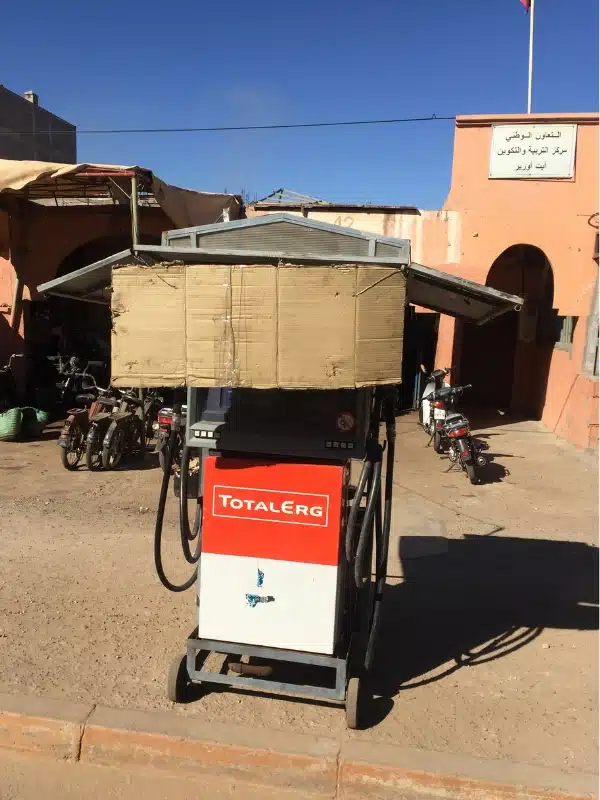
Breaking Down in Morocco
If you are taking your own vehicle to Morocco, check whether any breakdown cover you have can be extended to cover the country. If the cover can be extended, it is highly likely to be on a reimbursement basis, where you manage the process and claim the money back.
Check with your breakdown provider before leaving and ensure you know who to call in the event of a breakdown.
If you are hiring a vehicle, ask on collection what the process is if you break down.
Morocco has no national breakdown service, and you will have to use a local recovery service and garage to resolve your vehicle problems. If you do break down, passing locals will generally stop to make sure you’re okay and give a hand.
Even small towns will have a mechanic or car workshop where basic repairs can be managed and support from further afield can be drafted in if necessary. Moroccans are incredibly resourceful and everyone seems to know someone who can help.
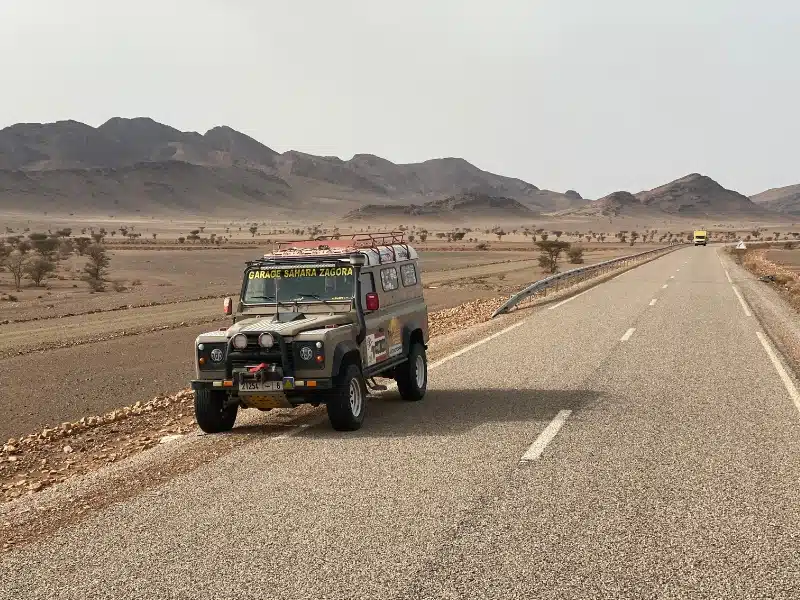
Moroccan Police
On every road into every city and town, you will see traffic police stationed at roundabouts. These police checkpoints allow them to monitor the comings and goings into each town. Sometimes they will also have a radar gun to check for speeding.
You will know there is a checkpoint coming up as temporary speed signs and stop signs will be displayed at the side of the road cautioning you to reduce speed to 60, 40, and then 20km/h, often in very quick succession.
If you are stopped and pulled over you will be asked for your passport, driving license, and sometimes your vehicle importation or hire car documents. The police officer will want to know where you have been and where you are traveling. The more specific you can be the happier they are!
People do report being stopped by the police and fined for unspecific traffic misdemeanors. The police are either unable to state the crime or will not produce a payment receipt, which always must be in cash!
The best option to find out if you are being scammed is to say that you will pay at the nearest police station. If no ticket is forthcoming, you know it’s a con and you must decide whether to refuse to pay and hope to be waved on or pay up knowing it’s going into the policeman’s pocket.
We saw noticeably fewer police checks during our most recent 2023 visit, and don’t have any photos to share with you. The Moroccan police do not like cameras.
Planning Your Moroccan Route
Morocco is a vast country and it will always take you longer to get to places than you think and long distance driving is a feature of any Moroccan road trip. If you don’t plan and arrive late, you may find yourself sleeping in your car on a garage forecourt (yes, it’s happened!).
Map out and plan your road trip route in advance and book your accommodation, particularly where the choices are limited. Leave plenty of time for breaks and stops to take pictures en route, as well as any unexpected road damage or roadworks.
Plan to arrive in the light where at all possible. It will be easier to find your accommodation and you’ll arrive stress-free.
RELATED POST: Atlantic to Sahara – A Morocco Road Trip
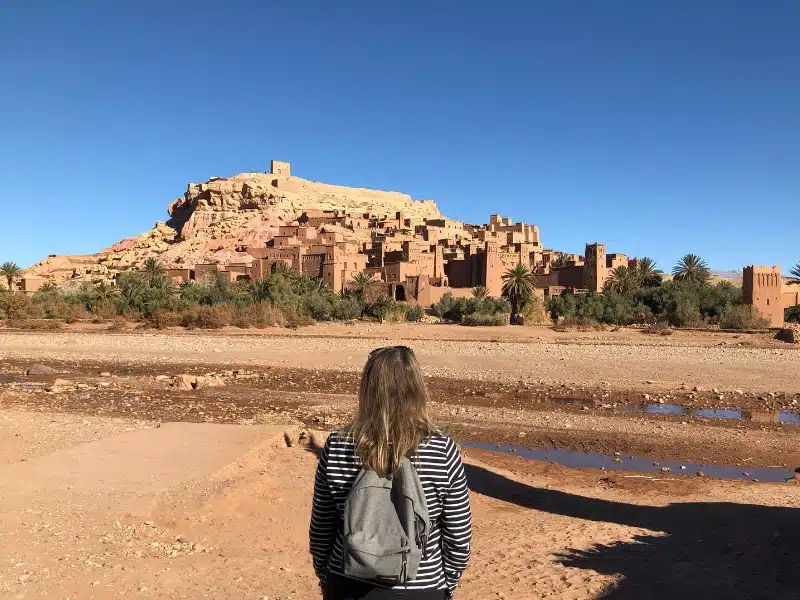
Be Prepared
If we haven’t scared the bejesus out of you and you’re still heading to Morocco for a road trip, make sure you’re prepared with all the important stuff before you hit the road.
Alongside your documents, a suitcase full of harem pants and flip-flops, at the top of your car packing list should be loo paper (most restaurant and public loos don’t provide this), lots of water and huge amounts of snacks!
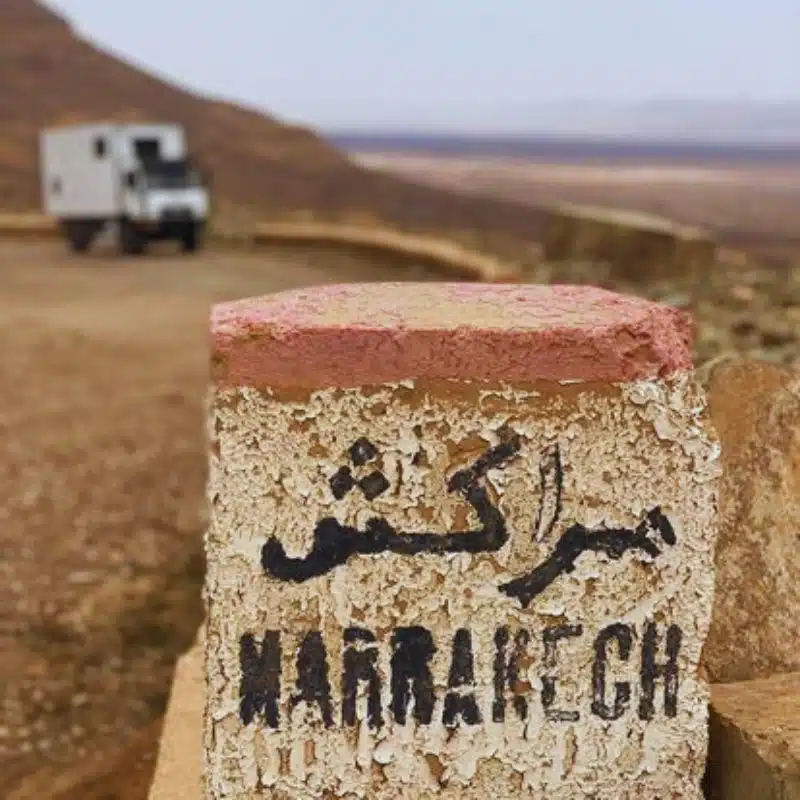
Should I Take a Road Trip in Morocco?
Despite the challenges and differences, we loved Morocco for its beauty, friendly people, and yes, its roads!
Much of the above is worst-case scenario stuff and chances are you won’t encounter any damaged roads, kamikaze camels, or sand storms. The first time we road tripped in Morocco we were full of trepidation, the second time was much easier and now it’s a total breeze.
One of the best things we did when we first visited Morocco was to travel independently, and now, our trips are always so much more rewarding than taking a guided tour or bus trip.
Instead of looking on through a coach window, we are immersed in the noise, smells, and culture of this amazing country.
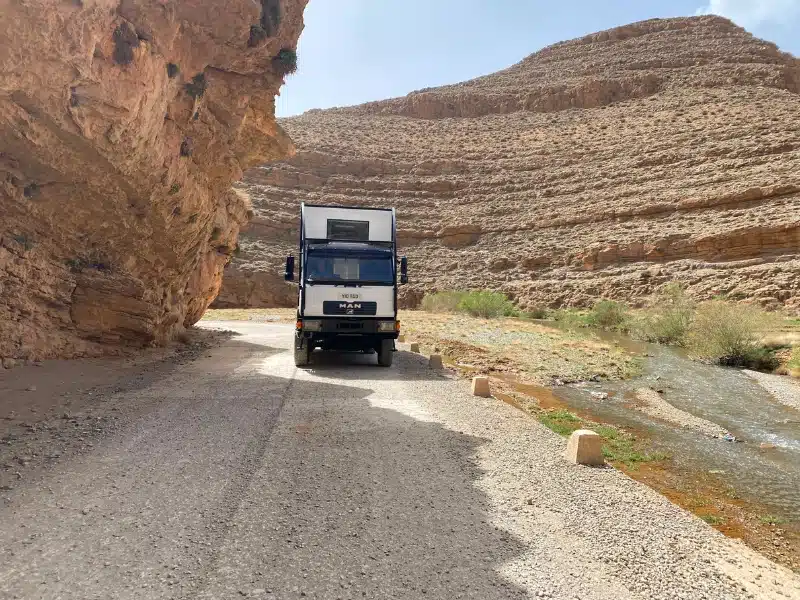
Are you looking for more road trip resources? Check out these top posts…
Hiring a Car in Spain: Tips, Rules & Road Trip Ideas
Smart Road Trip Accommodation Tips: Easy Planning for Every Budget
80+ Road Trip Hacks: Make Every Mile Awesome!
MOT for Long-Term Travel Outside the UK: All You Need to Know
Travelling to Europe? Here’s Why You NEED a GHIC
Ferry from Spain to Morocco: Best Options & Top Tips
Love it? Pin it!
